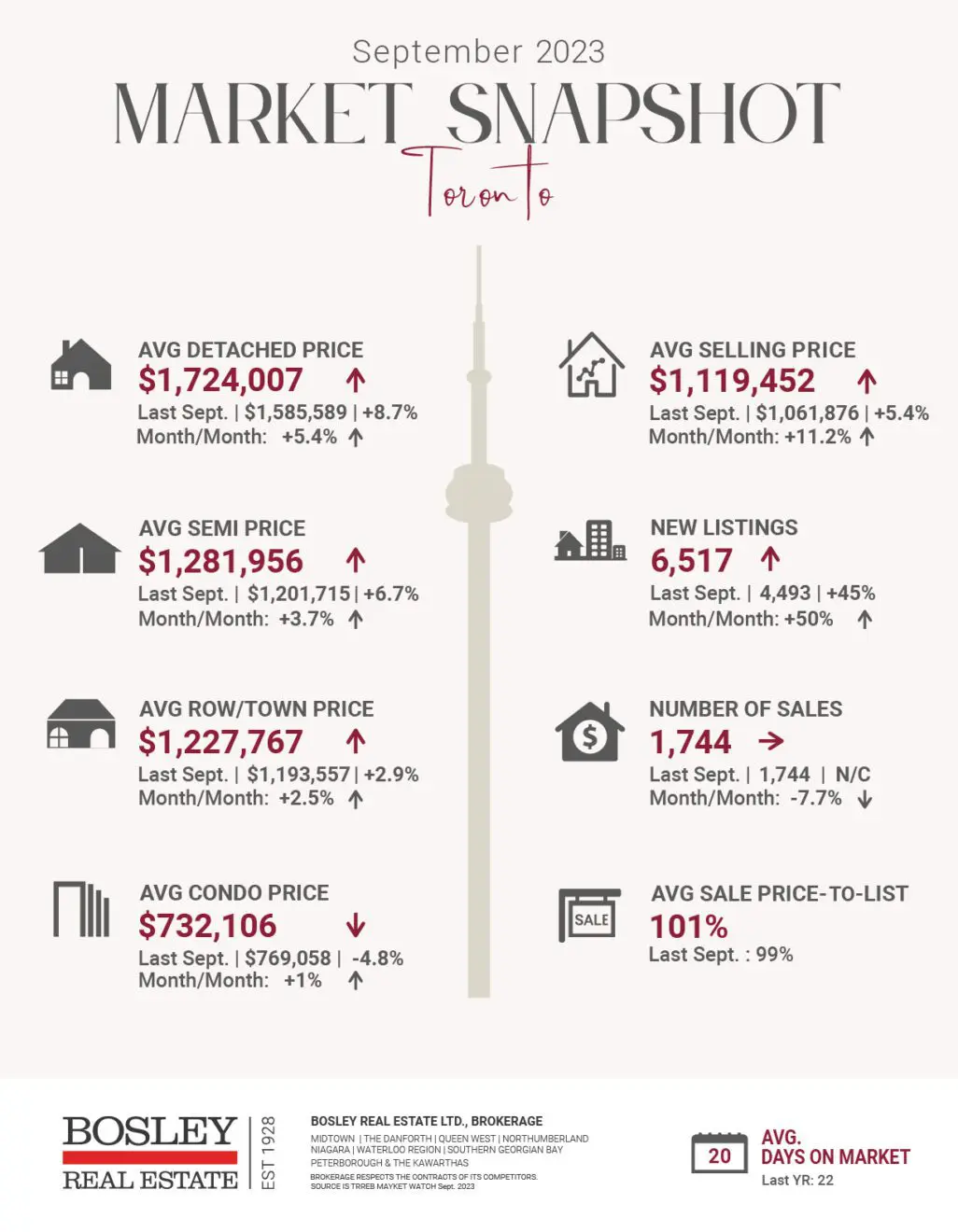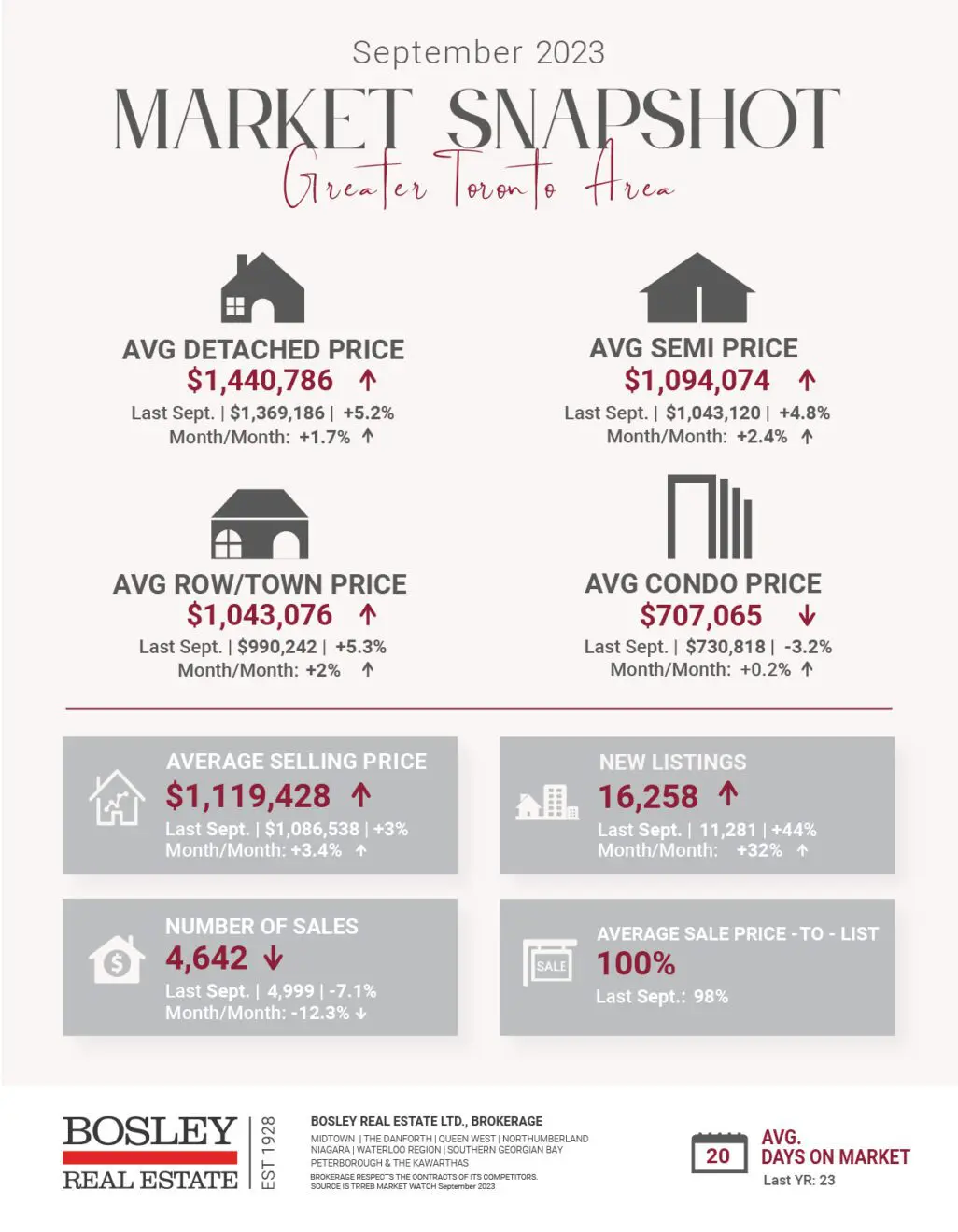


MARKET INSIGHT FOR THE WEEK ENDING October 13th
Toronto city council hikes vacant home tax to 3% to boost housing supply.
Owners of housing units that are sitting empty will soon have to pay more, with Toronto city council voting Wednesday to hike the vacant home tax from one to three per cent of a property’s assessed value.
The measure, which takes aim at speculators sitting on homes when the city is suffering a housing crisis, is expected to earn Toronto around $55 million this year.
Boosting the rate, city staff says, would increase annual revenues to at least $105 million in 2025, at least $95 million in 2026, and at least $87 million after that.
A property is considered vacant if it was not used as a principal residence by the owner, another permitted occupant, or a tenant for six months or more in a year.
The motion to approve the increase, which will be effective for the 2024 tax year, was carried 21-2.
There were also a handful of other changes to the tax made by council, including an amendment from Chow to put additional revenue from it into a city program that purchases and protects affordable housing units, and adding an exemption for newly built housing for two years.
The exemption period for the tax after an owner has died was also extended from two to three years.
The vacant homes tax is just one part of a strategy to fix the city’s pandemic-ravaged finances.
The tax is succeeding because, while it’s true that only 2,161 homeowners declared that their properties were vacant for more than six months in 2022 and subject to the tax, an additional 17,437 homeowners had not even bothered to file a declaration as of Aug. 1.
This is despite receiving an extra-long grace period to file, several notices, and a bill. There was a full-on ad campaign too, featuring notices on bus stops, TTC vehicles, radio, television, social media, and more. It was hard to miss.
The city does expect that some of these non-filers will still avoid paying the charge — the city has exemptions for things like the recent death of the homeowner, an owner who is hospitalized, or a property under major renovation — but at this point it seems safe to say that many of these non-filer homes are very likely to be vacant and will need to pay.
Combine those properties declared vacant with those the city has deemed vacant because the homeowner may have vanished off the face of the earth and there could be 19,598 unoccupied homes in the city. At the Toronto average of 2.4 residents per home, that means there’s potentially room to accommodate about 47,000 people in places that right now are only accommodating dust.

Here are the top 5 trending stories of the week:
- Hurdles remain for proposed class-action lawsuit alleging price-fixing in GTA real estate “The federal court recently allowed for a proposed class-action lawsuit that alleges price-fixing within the Greater Toronto Area’s real estate industry to move forward in the legal process. In a recent interview, David Dunbar, former senior general counsel at Canada’s Competition Bureau, and a lawyer specializing in regulatory compliance and competition who practices in association with Caravel Law, shared his insights on the recent developments in the Sunderland lawsuit. ”
- Growth In Residential Property Stock Slows In Ontario “Despite continuous conversations about the need to build 1.5 million new homes, Ontario’s housing stock grew at a slower rate over the last year compared to 2020. According to preliminary estimates from the Canadian Housing Statistics Program (CHSP), the province’s residential property stock grew by 1.3% from 2021 to 2022, a slowdown from the 1.5% seen from 2020 to 2021.”
- Only lower interest rates can revive Canada’s housing market, experts say “Financial Post’s Larysa Harapyn talks to John Pasalis, president, Realosophy Realty and to Steve Saretsky, Vancouver realtor, Oakwyn Realty, about how only lower interest rates can revive Canada’s housing market. They discuss how rate hikes have impacted the latest housing numbers in their respective cities and more.”
- Canadian Mortgage Delinquencies Are Climbing, But Stress Is Greatly Overstated “Canadian mortgage rates are climbing and may be creating a little more stress for borrowers. Equifax data reveals mortgage delinquencies have climbed from record lows in Q2 2023. That may present some concerns, until some context is provided. Yes, the delinquency rate is climbing from lows, but the rates remain much lower than they were pre-pandemic, when interest costs were less than half the current level. “
- People are now co-purchasing homes to afford Toronto’s overblown housing market “Now that sharing bedrooms (and perhaps even beds) in Toronto’s overpriced rental market is no longer out of the ordinary, it’s no wonder that progressively more people are going in on home purchases together, too. The GTA real estate landscape may be far cooler in recent months than it’s usually known to be, but even high interest rates and a precipitous decline in sales can’t make housing prices budge.”

The Bosley Advantage
Read about the heritage and innovation that form the foundation for Bosley’s industry-leading approach to real estate.




